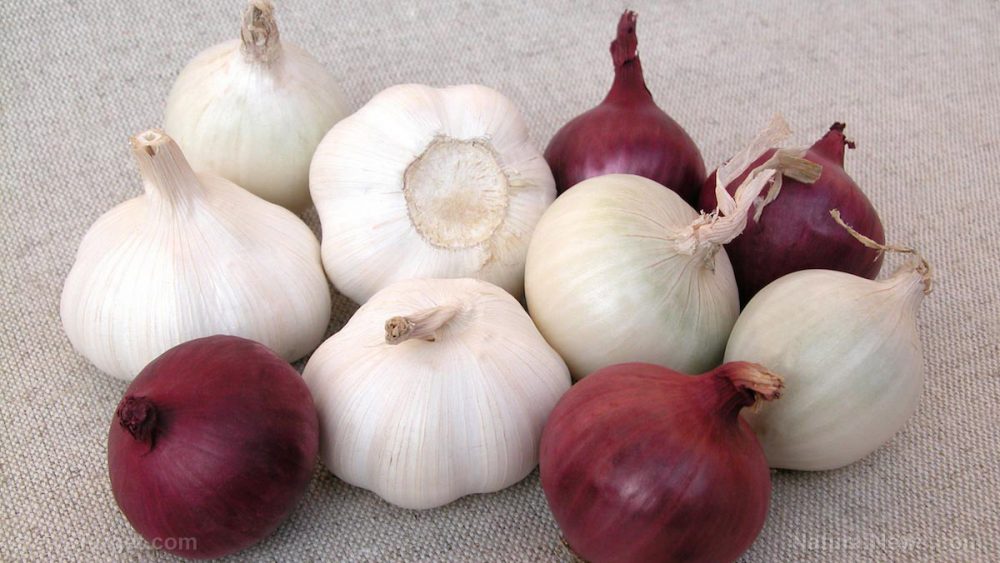
Advertisement
Herbs and spices are a must-have in your kitchen. These natural flavor-boosters can make any dish more delicious, and they also offer health benefits like boosting your immunity or lowering the risk of certain health conditions.
For example, vegetables belonging to the allium family, such as chives, garlic, leeks, onions, shallots and spring onions, have anti-cancer properties. To this day, researchers continue to study the many health benefits of a diet rich in these superfoods.
In a recently published study in the Asia-Pacific Journal of Clinical Oncology, researchers from China conducted a case-control study to investigate the effects of eating alliums on the risk of colorectal cancer. They found that a diet rich in a variety of alliums can prevent colorectal cancer in both men and women.
Increased consumption of alliums results in a significantly lower risk
Colorectal cancer is the third most common type of cancer in the world. In China, colorectal cancer cases continue to increase each year, although the number of reported cases is still lower than those in Europe and America.
The researchers noted that Asians who migrate to Western countries experience an increase in colorectal cancer risk, suggesting that environmental, dietary and lifestyle factors may play a role in the development of this type of cancer.
Many studies on colorectal cancer and the anti-cancer properties of alliums involve European or American populations. In China, research regarding the effects of allium consumption on cancer prevention has so far produced varying results.
This prompted Chinese researchers to conduct a case-control study in three different hospitals in northeast China from June 2009 to November 2011. They recruited 833 patients with colorectal cancer and matched them with 833 healthy individuals with the same age and gender who lived in the same locations. The researchers interviewed each participant and took note of their dietary habits using validated food questionnaires.
The results of their study showed that the consumption of allium vegetables reduces the risk of colorectal cancer in both men and women, regardless of the site of tumor within the colon. To effectively lower the risk of people in northeast China, the researchers calculated that a total intake of 16 kg of allium vegetables per year is necessary.
They also noted that their findings aligned with those of a study involving a southern European population, a meta-analysis based on multiple countries, and a study conducted in Guangzhou, China. On the other hand, their data were inconsistent with the results of cohort studies involving American, Dutch and Shanghai-Chinese populations.
According to the researchers, the discrepancies may be due to several factors. For instance, the way a vegetable is cooked varies from region to region, and this process significantly changes the vegetable’s chemical composition.
This means consuming alliums won’t always affect cancer risk while others may reap the benefits of eating more of these vegetables. In terms of individual allium vegetable intake, the researchers found that garlic intake is inversely associated with the risk of proximal colon and rectal cancer, while high intakes of onions, leeks and spring onions are inversely associated with the risk of both, as well as distal colon cancer.
Dr. Zhi Li, one of the authors of the study, remarked that their study clearly shows a trend: The greater the amount of allium vegetables, the better the protection. Li believes that while simply eating these vegetables is not enough to prevent colorectal cancer, combining a diet rich in these vegetables with a healthy lifestyle can remarkably lower people’s risk.
The researchers concluded that consuming a variety of allium vegetables like garlic, garlic stalks, leeks, onions and spring onions can provide preventive benefits in terms of colorectal cancer risk, regardless of the specific site of tumor.
Sources:
Advertisements







